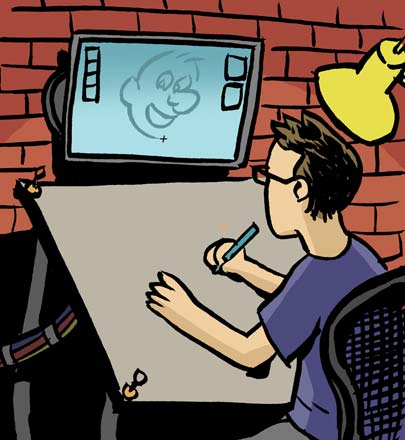Yesterday was
National Pie Day and it was also a meeting day for our roleplaying group, one of the members of which is from Louisiana and makes some fantastic meat pies. So we delegated him to the main course and I took on the dessert course. (Though it turned out he wasn't feeling up to those meat pies, so fell back on pizza.)
Feeling adventurous I decided to try something I've never made: a lemon meringue pie,
from scratch (though I used a store-bought pie crust). At first I was going to leave out the meringue as I heard it was too finicky for my skill level, and I would just make whipped cream for the topping. But when I was able to separate the eggs without even a tiny bit of yolk getting into the whites, I decided to go for it.

I didn't try to make the meringue decorative and pretty, I was just going for it being even.
The cornstarch, sugar, salt, and water custard base, after it's cooked to a gel but before the egg and lemon are added, is absolutely freaky-looking; I wish I'd taken a picture of that. It absolutely looks like a special effect from a horror movie, like the slime dripped by an alien (and in fact it, and things like it, are indeed used in movies for that purpose).
Since even the lemon pie part, let alone the meringue part, is a bit beyond what my kitchen skills are normally up to, I was absolutely determined to get it right, and as much on my own as possible. (That Siobhan was trying to nap only reaffirmed the latter.) I really dislike the comically-inept-man-in-the-kitchen sitcom stereotype.
Nevertheless I had a few stumbling points, mostly on finding things. In this, I'm at an unfair advantage: it's not my kitchen and pantry, so I don't know where things are. If I had been the one to choose where things were stored in line with my sense of organization, I'd be able to find everything and Siobhan would be wandering around looking comically inept.
And since Siobhan was up anyway, a few times I asked her for confirmation on things. Are these soft peaks? Is this golden browned enough? Stuff like that. But in each case my own sense of it had been right on the money. And a few questions like that I chose not to ask. On the one hand I want the pie to come out right, and on the other, I want to be able to say I did it.
My biggest flub: the instructions said to bake the empty pie shell for 15-20 minutes, so I put it in with a timer set to 15. At about 13, Siobhan pulled it out as it was a little too dark. Not ruined unusable, but enough that people mostly ate around it. Lesson learned: when the recipe called for about 10 minutes to get the meringue golden brown, I set the timer to 5 minutes, and sure enough, it was done then.
Anyone who studies computer science (hold onto your hats, I didn't really just change the subject drastically, it just looks like I did) has probably heard the word "algorithm" defined with an analogy to recipes. A recipe is an algorithm, a step-by-step series of instructions to accomplish a particular objective. To turn the analogy on its head, I have determined that recipes pretend to be in an
interpreted language but are really in a
compiled language.
For those who aren't computer scientests, the difference is this. Interpreted languages are ones where the computer can read one line of program at a time, execute it, and then read the next. Compiled languages are ones where the entire program has to be read, parsed, translated into a more basic language (usually a machine language), and then that translated version is executed. Interpreted languages are usually simpler to undertand, and compiled languages are far more efficient, but sometimes harder to write.
Recipes look like you can just start on step one and work your way down, but in practice, almost all recipes will fail if you do that literally, unless you already know enough in the kitchen to second-guess the recipe. Which is where things get tricky. All your seasoned and trained cooks know how to do that, and most don't even realize they're doing it. When they get to a step that requires them to have done something earlier to prepare for it, they already did that thing, even though no previous step said to do so, because they just know that such things are required. They're used to the idea that instructions are hidden in the ingredients list (for instance, the ingredients list might refer to something "finely minced", offering you no help in knowing when during the process you should mince it, particularly if it's something you can't mince an hour in advance as it'll turn brown but have to mince just before you need it). All the differences between the instructions in the recipe, and the actual series of steps you have to do to make the recipe, are things they take for granted.
For the rest of us, you have to read the entire recipe beforehand, sometimes more than once, and then think through the process of making the recipe to figure out the hidden steps. At this point, I'm going to be stuck at the stove stirring but will need to be able to set a timer, so I need to get a timer set with the right amount of time and nearby before this other step. Before I get to this point, the butter will have had to soften so I actually need to get it out before this other step. When separating the eggs, it's vitally important that not one bit of yolk be left in the whites; if it is, throw out the whites and start over. Stuff like that. The difference between a recipe being easy for beginners or being persnickety and challenging for beginners is often in these missing steps. I feel sure I could now write a truly algorithmic, interpreted language lemon meringue pie recipe that beginners could follow without a problem, but it would be twice as long, and no recipe book would ever publish it. So I guess I'll have to keep compiling recipes before I execute them.
No, in case you were wondering, I didn't try to make a pie shaped like this:

National Pi Day isn't until March. The 14th, in fact. Think about it.






































 Prism
Prism Uncreated
Uncreated Bloodweavers
Bloodweavers Foulspawner's Legacy
Foulspawner's Legacy Lusternia
Lusternia